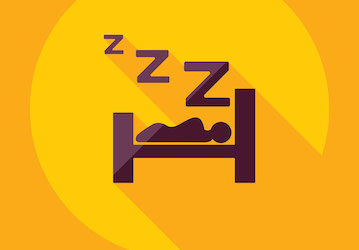Healthy sleep leaves you refreshed, resilient, and ready to take on the next challenge! Sleep is critical to optimize your performance and military wellness, but what works for you might not work for others.
Use the worksheet below to check off those science-based, sleep habit tips you currently do—and which ones you’d like to try to sleep better.
Learn more about how to improve your sleep by reading HPRC’s sleep optimization for the military overview. Also, check out HPRC’s sleep diary and sleep self-study to learn more about your sleep patterns.
Published on: July 2, 2024
References
Banks, S., & Dinges, D. F. (2007). Behavioral and physiological consequences of sleep restriction. Journal of Clinical Sleep Medicine, 03(05), 519–528. doi:10.5664/jcsm.26918
Basner, M. (2011). Sleep duration and chronic sleep debt: Are 6 hours enough? Biological Psychology, 87(1), 15–16. doi:10.1016/j.biopsycho.2011.02.015
Boyko, E. J., Seelig, A. D., Jacobson, I. G., Hooper, T. I., Smith, B., Smith, T. C., & Crum-Cianflone, N. F. (2013). Sleep characteristics, mental mealth, and diabetes risk: A prospective study of U.S. military service members in the Millennium Cohort Study. Diabetes Care, 36(10), 3154–3161. doi:10.2337/dc13-0042
Chuah, L. Y. M., Dolcos, F., Chen, A. K., Zheng, H., Parimal, S., & Chee, M. W. L. (2010). Sleep deprivation and interference by emotional distracters. Sleep, 33(10), 1305–1313. doi:10.1093/sleep/33.10.1305
Goel, N., Basner, M., Rao, H., & Dinges, D. F. (2013). Circadian rhythms, sleep deprivation, and human performance. In Chronobiology: Biological Timing in Health and Disease (pp. 155–190).
Harrison, Y., & Horne, J. A. (2000). The impact of sleep deprivation on decision making: A review. Journal of Experimental Psychology: Applied, 6(3), 236–249. doi:10.1037/1076-898x.6.3.236
Kamimori, G. H., McLellan, T. M., Tate, C. M., Voss, D. M., Niro, P., & Lieberman, H. R. (2014). Caffeine improves reaction time, vigilance and logical reasoning during extended periods with restricted opportunities for sleep. Psychopharmacology, 232(12), 2031–2042. doi:10.1007/s00213-014-3834-5
Lim, J., & Dinges, D. F. (2008). Sleep deprivation and vigilant attention. Annals of the New York Academy of Sciences, 1129(1), 305–322. doi:10.1196/annals.1417.002
Troxel, W. M., Shih, R. A., Pedersen, E., Geyer, L., Fisher, M. P., Griffin, B. A., . . . Steinberg, P. S. (2015). Sleep in the military: Promoting healthy sleep among U.S. servicemembers. Rand Corporation, Santa Monica, CA, Retrieved 18 February 2020 from http://www.rand.org/content/dam/rand/pubs/research_reports/RR700/RR739/RAND_RR739.pdf
